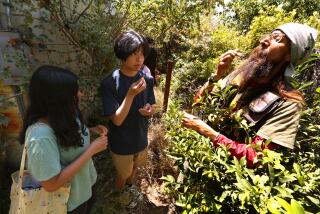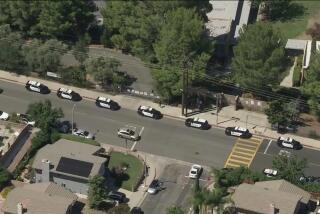Learning to Prevent Violence
- Share via
Students at Jordan High School in Watts are learning that fists, knives and guns aren’t the only way to resolve a dispute. A novel curriculum at the school is trying to teach youngsters how to handle anger without fighting. The instruction belongs on every campus.
The violence-prevention curriculum, developed by a Boston physician to address teen-age homicide and suicide, is taught in 150 schools nationwide. In the Boston high school, where the program has been taught for three years, the number of violence-related suspensions has dropped off by two-thirds.
Jordan is the first Los Angeles school to use the curriculum. Donzella Lee, director of the school’s new health clinic, introduces the classes. Violence prevention is important for these students. Many are likely to encounter violence outside the school, where most fighting occurs, because their campus on 103rd Street borders neighborhoods that are homes to hundreds of gang members--including some who are classmates.
The class is a requirement for every ninth-grader. The focus in the first session is on gangs, and how to handle them. Death and dying are also discussed. The remaining sessions focus on topics like how to deal positively with anger and arguments, how to react to name-calling and insults, how to be manly without being macho; how fights begin and escalate and how to avoid a fight even when friends are egging the battle on. The lessons are certainly worth learning, and not only by teen-agers.
Gang violence, however, isn’t the only form familiar to Jordan’s students. Any frequent moviegoer or television viewer sees plenty of violence. “We teach kids that violence is glamorous. It’s the hero’s first choice to settle an argument, and there are never any repercussions,” according to the physician who developed the program, Dr. Deborah Prothrow-Stith. She was in Los Angeles recently to encourage television producers to use children’s programming in teaching youngsters how to channel their anger.
Jordan’s new violence-prevention curriculum is based on the assumption that education can change behavior. That’s true; ask any former smoker. Success can save lives.
More to Read
Sign up for Essential California
The most important California stories and recommendations in your inbox every morning.
You may occasionally receive promotional content from the Los Angeles Times.













